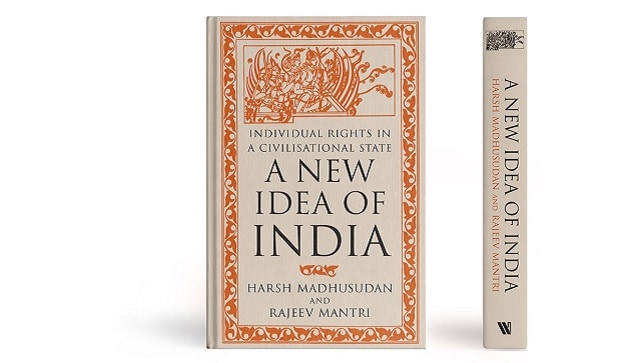
Madhusudan and Mantri describe Bharat’s journey from a civilisation to a nation, the dangers of demographic takeover especially in states like Bengal, Assam and Kerala, “saving secularism from secularists”, and the baroque minority appeasement by successive Central and state governments

There is very little to disagree with Harsh Madhusudan and Rajeev Mantri’s book, A New Idea Of India, except for the title.
It is true that India’s dominant intellectual class, who remain torchbearers of Nehruvian secularism and liberalism, had reduced the phrase ‘the idea of India’ to a caricature; a dogmatic banality which precluded any debate, discussion, or a different viewpoint. Their idea of India was one in which only the ‘liberal’ elite know what is best for the nation, defined ‘modernity’ and ‘progress’ just as our western colonial masters would, minorities get a free run of identity politics while the majority must not assert theirs and quietly become more and more accommodative, and the vast ocean of humanity which sees its belief systems and way of life mocked daily by a bunch of deracinated end-products from the colonial education factory must surrender their cultural and political space to that very bunch.
Yes, a permanent break from that fake and rigid idea of India was desperately needed. It is rapidly unfolding in society and politics as we speak. But that is not a new idea.
India, or Bharat, is getting back in touch with its original idea. This idea is open-source, not prisoner of a religion or -ism but based on a dharma (distinct from religion) which thinks beyond an individual and group. It prays for happiness, wellness and prosperity of all, not just of individuals belonging to one’s own religion.
Sarve bhavantu sukhinah
Sarve santu niramayah
Sarve bhadrani pashyantu
Na kaschid dukha bhag bhabet.
Invasions or imperialism may have overridden this idea of India, but society kept it alive under the surface. After 70 years of Independence, this very society is bringing it out through borewells in social media, media, academics and publishes.
Bringing in thinkers like Nassim Taleb and Karl Popper, the book argues against certitude and for a certain healthy scepticism in all matters of life to put forth their idea of India.
“Scepticism is an indispensable foundation of what is called science. The fundamental premise of scientific inquiry is that an unknown truth can be learned through iterative experimentation and exploration… also, scepticism and the intellectual humility that it engenders, is required to cultivate genuine tolerance in a society,” it says.
It juxtaposes this plurality against first prime minister Jawaharlal Nehru’s dogmatic approach: “In both economic and social spheres, the Indian State exuded a certitude that chafed against the millennia-old pluralistic and sceptical ethos of the society it sought to govern. But the governance philosophy was not limited only to certitude; it was selectively condescending as well. While Hindu personal laws were modernised, Muslim laws were not. Perhaps Nehru wanted to cultivate a committed voter base to support him as he pushed through his programme of leftist economics.”
Madhusudan and Mantri describe Bharat’s journey from a civilisation to a nation, the dangers of demographic takeover especially in states like Bengal, Assam and Kerala, “saving secularism from secularists”, and the baroque minority appeasement by successive Central and state governments. They make a robust case for capitalism, profit, and small government. And finally, they underline the need to decolonise the Indian mind.
If one goes back to a 1997 essay by Sunil Khilnani titled The Idea of India, one finds that beneath his fine writing and arguments was the worldview that saw India from the eyes of the urban, English-speaking intellectual who conflated modernity with westernisation and the then-nascent quest to reconnect with one’s Hindu cultural roots as a fringe identity-hunt.
Perhaps what augments the difference in viewpoints in that piece and this book is the timing. Khilnani was writing in the time of a Congress politically in decline but firmly ruling the media and academic bastions and a weak and chaotic United Front government led by IK Gujral with regional satraps scavenging for the spoils of power at the Centre. Madhusudhan and Mantri are writing in Narendra Modi’s India in which the direction of the polity is clear and so is the intention and confidence of the larger society.
In that sense, the book certainly captures the idea of a new India.
Find latest and upcoming tech gadgets online on Tech2 Gadgets. Get technology news, gadgets reviews & ratings. Popular gadgets including laptop, tablet and mobile specifications, features, prices, comparison.